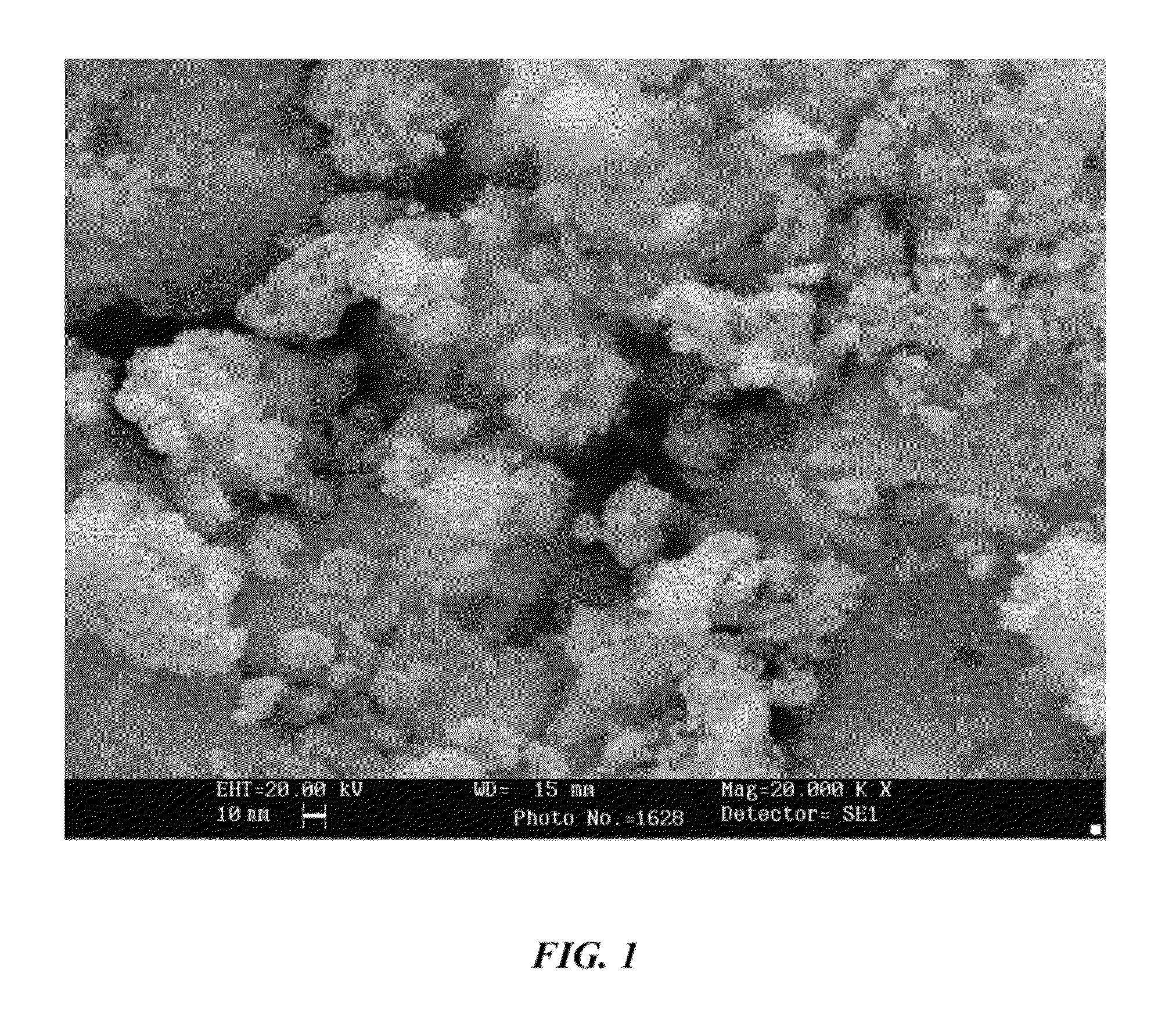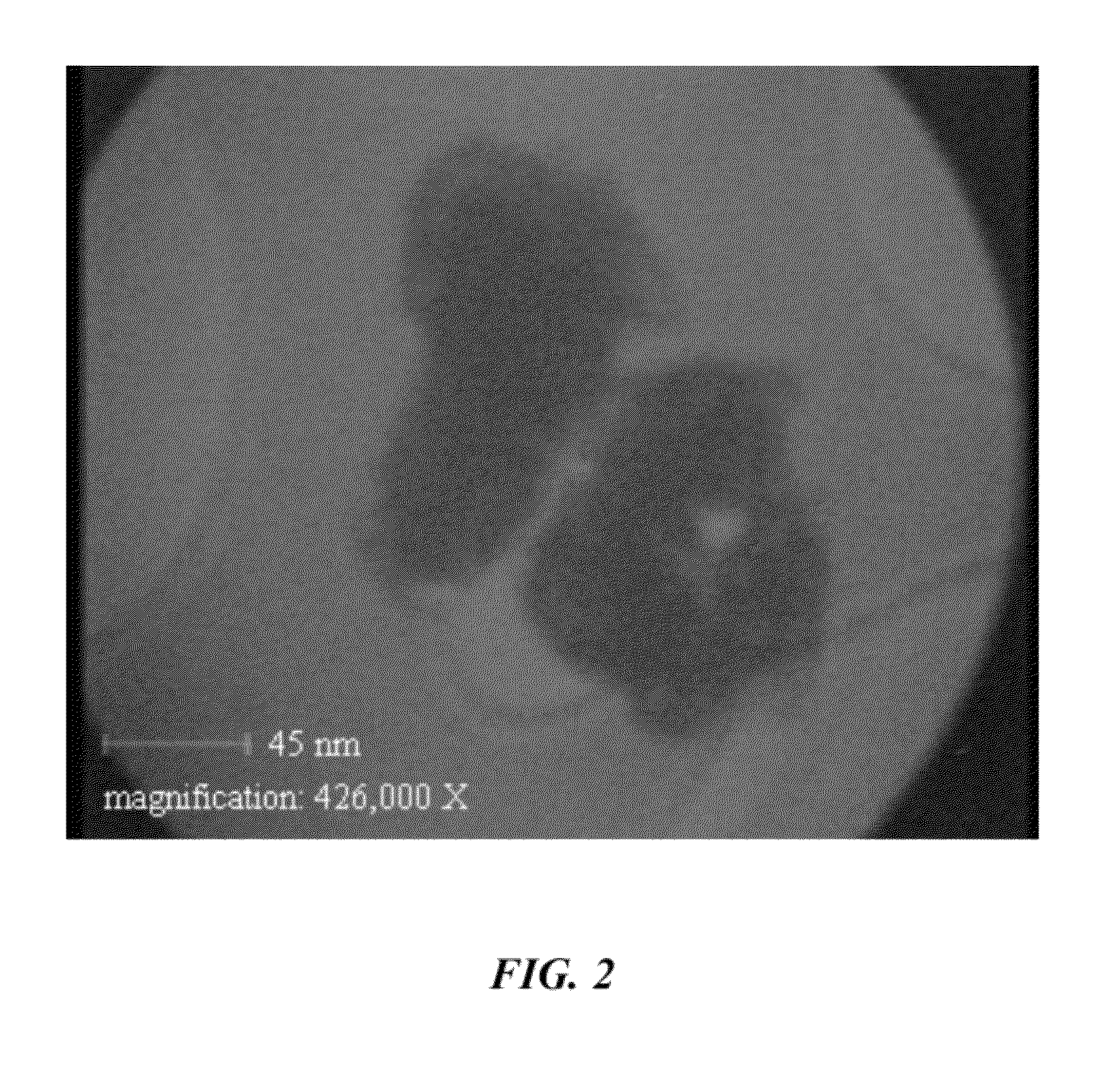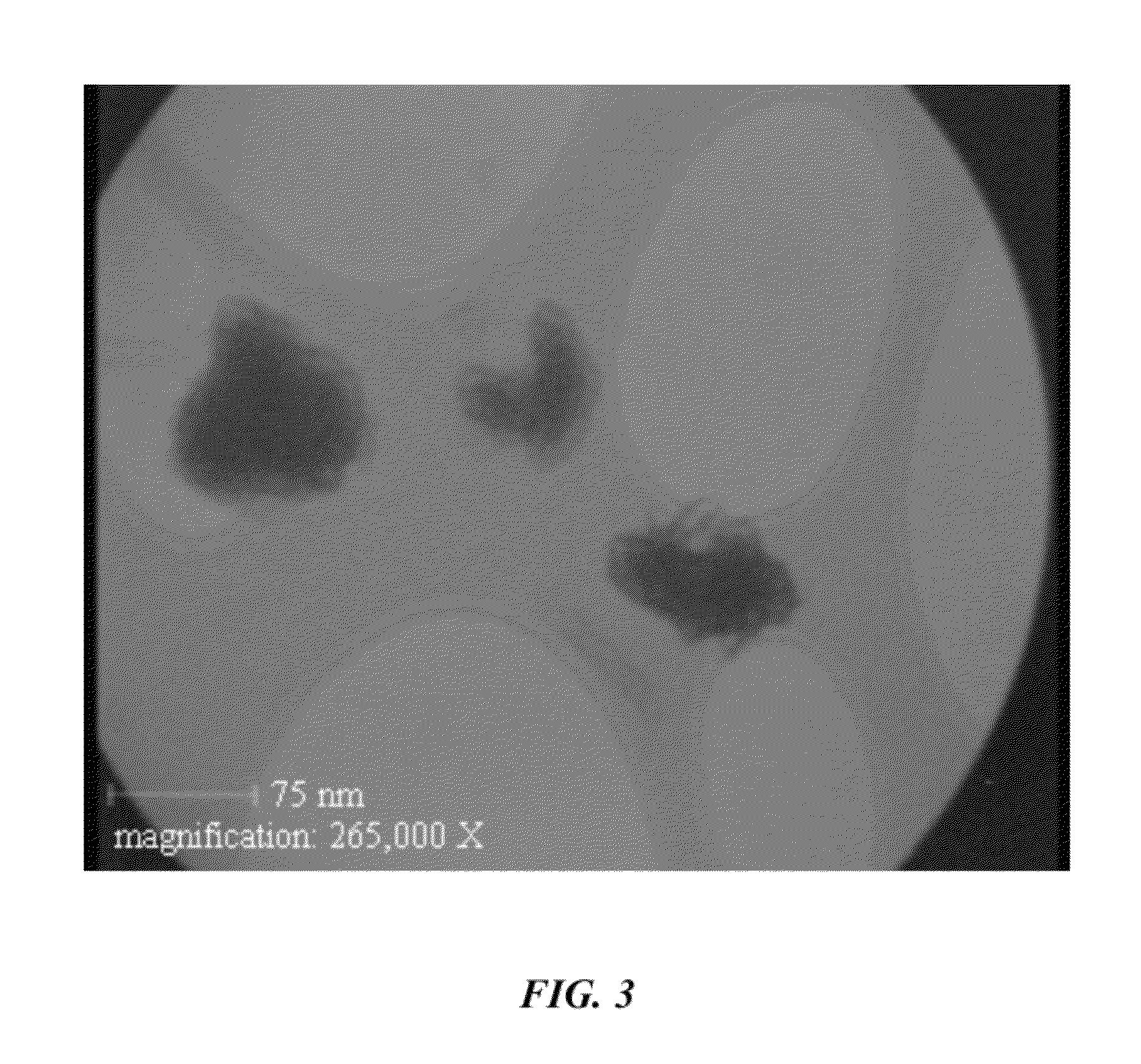Dental cement composition
a technology of dental cement and composition, applied in the field of endodontics, can solve the problems of inability to completely inability to penetrate the root canal, inability to fully seal off the root canal, etc., and achieve the effects of reducing the number of fractures
- Summary
- Abstract
- Description
- Claims
- Application Information
AI Technical Summary
Benefits of technology
Problems solved by technology
Method used
Image
Examples
Embodiment Construction
[0025]The present invention is a chemical composition of dental cement, which can also be used for other endodontic procedures including root-end filling, pulp capping, and so on. The dental cement composition is made up of ingredients comprising nanoparticles of Di-calcium Silicate (Ca2SiO4), Tri-calcium Silicate (Ca3SiO5, Bismuth Oxide (Bi2O3, Gypsum, Strontium Carbonate (SrSO4), Zeolite, Calcium Sulfate (CaSo4), Di-sodium Hydrogen Phosphate (Na2HPO4), Tri-calcium Aluminate (Ca3Al2O6). A detailed breakup of the composition is tabulated below in Table. 1.
[0026]
TABLE 1IngredientMolecular FormulaPercentageDi-sodium Hydrogen PhosphateNa2HPO42Bismuth Oxide (Bismite)Bi2O317Tri-calcium Silicate (Hatrurite)Ca3SiO550Di-calcium Silicate (Larnite)Ca2SiO415Calcium Sulfate (Anhydrite)CaSo42GypsumCaSo4•2H2O5Strontium CarbonateSrCo33ZeoliteM2 / nO•A12O3•xSiO2•yH2O2Tri-calcium AluminateCa3Al2O64
[0027]In order to prepare the dental cement, the ingredients thereof are mixed together in any order and ...
PUM
| Property | Measurement | Unit |
|---|---|---|
| length | aaaaa | aaaaa |
| length | aaaaa | aaaaa |
| temperature | aaaaa | aaaaa |
Abstract
Description
Claims
Application Information
 Login to View More
Login to View More - R&D
- Intellectual Property
- Life Sciences
- Materials
- Tech Scout
- Unparalleled Data Quality
- Higher Quality Content
- 60% Fewer Hallucinations
Browse by: Latest US Patents, China's latest patents, Technical Efficacy Thesaurus, Application Domain, Technology Topic, Popular Technical Reports.
© 2025 PatSnap. All rights reserved.Legal|Privacy policy|Modern Slavery Act Transparency Statement|Sitemap|About US| Contact US: help@patsnap.com



